- Home
- Patricia Cornwell
Ruth, a Portrait Page 11
Ruth, a Portrait Read online
Page 11
Despite the problems, Ruth recorded at the time, “God is blessing and when a man gets saved it makes everything seem worthwhile.”
Billy had twice applied for an army chaplaincy and had both times been refused because he was underweight. But in August 1944 he was accepted. Had he followed this course he likely would have been assigned to a base where he would have spent the remainder of the war behind a desk. Still three pounds underweight, he would not have been sent overseas. This question became moot when illness intervened and changed the course of his life. First, he began experiencing stress-related paralysis of the throat, and in early October contracted a dangerous strain of mumps in both sides of his neck.
A doctor visited him daily, but there were no antibiotics available. Ruth camped at his bedside, feeding him strained baby foods and liquids. Several times his temperature climbed so high he became delirious. One night, burning up, he began describing angels on the ceiling. “Can’t you see them?” he asked. Ruth, desperate with the fear that he was dying, knelt beside the bed. Her prayers were tears. When he finally emerged from his sickbed six weeks later, he was as pale as death and weighed a mere one hundred and thirty pounds.
Soon after, a hundred-dollar check arrived from a woman who had heard Billy on the radio. “Please go down to Florida and take a vacation,” her note read. The money could not have come at a better time, and he and Ruth drove to Miami. They rented a small room on Seventy-ninth Street, several miles from the ocean, not knowing that Torrey Johnson was vacationing in a hotel three blocks away. When Johnson discovered that Billy was staying nearby, he invited him to go fishing. While reeling in “at least a score of big fish,” as Billy recalled, Johnson asked him to become a full-time evangelist for Youth for Christ.
Should Billy accept the offer, he would be responsible for organizing rallies, or crusades as they were later called, and new Youth for Christ chapters throughout the United States and Canada. After discussing it with Ruth, he accepted the offer. He resigned his position at Western Springs and his army commission, believing he could reach more servicemen through his rallies than from behind a desk. The members of his congregation were not surprised by his decision. They had sensed that it was only a matter of time before he would leave. Neither their church nor any church could contain this man who paced about like a caged tiger.
“I don’t think Billy would ever have made a very good pastor,” observed Myrna White, a former parishioner. “I don’t think he’s the type who would be happy settling down in one place.” Robert Van Kampen realized that it was time for his protégé to pack when he found fourteen preaching invitations in the church mailbox one morning. “Our church is too small,” Van Kampen recalled thinking. “God has given him a special gift. He is going to be another Billy Sunday or Dwight L. Moody.”
Married to an evangelist, Ruth knew that the separations could only become more frequent, and she reasoned that if she couldn’t be with him, she should at least be allowed to live where she would be happiest. Early in 1945, the Grahams packed the car, drove south to Montreat, and moved into an upstairs bedroom in her parents’ house. For the next year Billy would travel to virtually every large city in the United States, thanks to a wealthy man from Kenosha, Wisconsin, who had given him and Johnson airline credit cards. There was not enough money to buy Ruth plane tickets. Unless Billy drove to his rallies, she stayed in Montreat.
In the summer of 1945, Ruth prepared for the birth of their first child. Finding a plain straw bassinet, she painted it blue and lined it with quilted blue satin. She trimmed it with yards of her wedding veil. On September 21, while Billy was away, Ruth gave birth. She named her Virginia Leftwich, after her mother, but called her “GiGi,” which is Chinese for “sister.” Ruth became her mother’s friend and apprentice. They cooked, gardened, sewed, and cleaned house together. Secure now in her parents’ home with her new child, she found the separations tolerable. For the first time since Ruth had left Qingjiang for Korea in 1933, she felt she had really come home.
In 1946, Billy and his new exuberant and handsome song leader, Cliff Barrows, held rallies in twenty-six cities in the British Isles. Later that year Youth for Christ enjoyed a larger budget, and Billy was told that Ruth could travel with him from time to time. Her early trips abroad were educational, if not humorous, for she was more naive than he was. Her first trip was in December.
She was to travel to New York and fly to London, where she would meet her husband. By the time the taxi drivers and waiters had collected their tips, and the airline agents had penalized her for overweight baggage, she boarded the DC-4 with two cents in her billfold. She lost her first dinner somewhere over the Atlantic and changed into her homemade red wool robe late that night in the men’s restroom. She discovered the mistake the next morning when she retrieved her dress, which was hanging on the wrong door.
When the plane landed, she spotted Billy behind a fence just off the runway and, like a homing pigeon, headed toward him. A flight attendant in hot pursuit informed her, “You have to go through customs first.” Her husband, enormously amused, added to her discomfort by moving into the lobby while the agent was slashing her bags with yellow chalk. “They’re going to throw you in jail!” Billy announced repeatedly. The agent, long-faced and grim, as though he had been checking bags since the Norman Conquest, asked Ruth if she had any gifts to declare.
She thought a moment and whispered, “Just one. But don’t let him see it.” She nodded toward her husband. Fishing into her handbag, she discreetly slipped out a photograph of GiGi that she planned to give Billy for Christmas. It may have been the first time the agent had smiled in months.
That night, the Grahams checked into the exclusive Grosvenor House, financed by a friend who had instructed them to have a second honeymoon. Ruth marveled at the mysterious contraptions in the room, such as the bidet. “Why on earth couldn’t you put your feet in the basin or use the tub?” she asked. And the tub? Why, she’d never seen one so big and declared that the wire soap dish looked like a bicycle basket.
After a month of bitter cold, foggy weather and a bland postwar diet of powdered eggs, potatoes, and bready sausages, an incident occurred which demonstrated that being married to an evangelist had its trying, if not absurd, moments. En route to Belfast, Billy and Cliff Barrows warned their wives that the Irish Christians considered cosmetics to be the paint of sinners. They urged Ruth and Billie Barrows to wipe off their modest makeup. The women dutifully obeyed. Powderless and minus eyebrows, Billie played the organ during the service while her husband led the singing, the couple mistakenly advertised as the “Barrows Brothers.” Ruth sat in the audience, certain that the very people they needed to reach were the ones who now would be least attracted to these pale, frumpy Christians.
With thoughts such as those in mind, she appeared at a service several nights later with a dab of Tangee Natural shining on her lips. After the service, two Irish women confronted the Grahams.
“We received a tremendous blessing from your message,” one woman said to Billy, while she looked pointedly at Ruth. “But we lost it when we saw that your wife was wearing makeup.”
Surprised, Billy studied his wife’s face, unable to detect the virtually transparent lipstick. “I’m sorry,” he said, “she has no makeup on.”
Ruth smiled.
This incident was not to be forgotten, it seems. Years later when Dr. Edwin Orr, president of the Oxford Association for Research in Revival, was addressing a group of men in Belfast, a gentleman raised his hand to ask a question.
“Is it true that Mrs. Billy Graham wears makeup?” the man asked.
Surprised, Orr evaded the question and again the arm shot up.
“What do you think of makeup?” the man asked.
“I don’t know,” Orr replied, “I’ve never tried it.”
When the laughter subsided, the man’s hand shot up again, and a neighbor jabbed an elbow into his ribs, exclaiming, “I say! Leave Billy Graham out of this, can’t you?
Don’t you remember, John Wesley had a bad wife too?”1
In the fall of 1947, the Grahams were thrilled that Ruth was again pregnant, and they bought a two-story, partly furnished summer house across the street from her parents. It was built of white clapboard and fieldstone flecked with mica, the eaves curling low over large windows like a worn felt hat pulled over an old man’s ears. With the forty-five hundred dollars they borrowed from the local bank they began making the forty-five-dollar monthly payments.
Ruth and her mother searched mountain junk shops for antiques and secondhand furniture. Virginia, home from nursing school at Johns Hopkins, helped them sand the drab green paint off the Victorian furniture sold with the house, refinishing the wood until it glowed like honey. Lamps evolved from adhesive tape canisters, old bottles, a small wooden bucket, and an ironware sugar bowl.
In May, Billy began to wonder if he was losing his authority at home. The first of what would be many hints came when Ruth was in the hospital with their newborn second daughter, Anne, and he decided on a whim to chop down the rhododendron thicket enclosing the yard. He gave the order and the workmen hemmed and hawed, staring sheepishly at their dirt-caked boots, before one of them finally replied in his mountain drawl, “Don’t you think we’d best ask Miz Graham first?” They knew she would be horrified if she returned home and found the house visible to every driver and pedestrian on Assembly Drive, Montreat’s main thoroughfare.
That summer, William Bell Riley, the president of Northwestern Schools in Minneapolis, summoned Billy to visit him in Golden Valley, Minnesota. Riley, a devout man and longtime admirer of Billy, was eighty-six years old and dying. A thunderstorm shook windowpanes as Riley jabbed a gnarled finger at the young evangelist and declared that Billy was to succeed him as president of the interdenominational institution, comprising a liberal arts program and a seminary. Billy’s impulse was to say no, but he was intimidated by Riley’s proclamation.
Ruth was opposed. Billy was an evangelist, not a scholar, she told him. Against his wife’s wishes and his own good sense, he replied in September that should Riley die within the next ten months, he would accept the position until a new person could be chosen. On December 6, 1947, the man died, and at the age of twenty-nine, Billy found himself the president of a school with more than seven hundred and fifty students and no money. He gave the school the motto “Knowledge on Fire” and began forging the place into another Wheaton. His frustration mounted as his desire to preach and his new academic responsibilities yanked him hard two ways.
Ruth had no intention of going along for the ride and did not embrace the role of first lady. One day, a Northwestern Schools administrator telephoned her and cheerfully asked when she was moving to Minneapolis to occupy the president’s mansion.
“Never,” she let him know.
In the fall of 1949, Billy launched a crusade that would capture the country’s attention. His fourth that year, it was held in a tent virtually the size of a city block in downtown Los Angeles. Eye-catching signs and newspaper advertisements proclaimed, “Dynamic Preaching, Heavenly Music, 6,000 Free Seats.” Ruth joined her husband for what she thought would be the third and final week, leaving four-year-old GiGi with the Bells and fifteen-month-old Anne with Aunt Rosa in Los Alamos, New Mexico.
The 1949 Los Angeles crusade is legendary in Billy Graham history. Books, magazines, and newspaper articles hail it as his starting block. The myth, which was passed by word of mouth and in print, claimed that newspaper mogul William Randolph Hearst sent a memorandum to his reporters which read, “Puff Graham.” Hordes of photographers and journalists descended on the meetings and Billy’s name and face were circulated around the country. As is true of most legends, a portion of its fabric is woven of exaggeration.
It is a fact that William Randolph Hearst endorsed the young evangelist, and this was partially due to the thousands of Americans, English, Irish, and Scottish who had noticed Billy first. According to Hearst’s son William Randolph Hearst Jr., his father was interested in what attracted the attention of the greatest number of people. In the past, senior Hearst had endorsed both Billy Sunday and Mary Baker Eddy. Billy Graham was not an obscure farmboy preacher who by the grace of Hearst became a star. The memo “Puff Graham” never existed, claimed Hearst Jr.
“Pop would have never sent a memorandum to an editor of his papers with the words Tuff Graham.’ He was not given to talking or writing in such cryptic style, and I never heard him use the word ‘puff,’ “William Hearst said many years later. “It was not a word used in the journalism profession except by press agents.” Hearst, said his son, “was committed intellectually to help spread the Christian Gospel, and he highly approved of Billy’s influence on America’s youth.”
What William Randolph Hearst did do, recalled Don Goodenow, picture editor of the old Los Angeles Examiner in 1949, was send teletype messages to his managing editors, urging them to “give attention to Billy Graham’s meetings.” Reporters and photographers from the Examiner and other Hearst newspapers were dispatched to the services. Each Friday night, Goodenow arranged a full page of photographs of Billy preaching, which ran in the Saturday morning paper and were picked up by the wire services. Favorable letters from readers piled up in the Examiner’s editorial department, and journalists began referring to Billy Graham’s “charisma.” He was eloquent and powerful, they wrote, and he had a commanding baritone voice.
“He did have an appeal for young people, no doubt about it,” Goodenow recalled. “And even in the atmosphere of the newsroom, which can be callous at times, he was taken seriously.”
Masses of people appeared at the tent, their interest generating more press, which in turn generated more public interest. Billy’s image was elevated to a new high. “Churchmen say he’s started the greatest religious revival in the history of Southern California,” read the Indianapolis Star on November 2. “Old style religion is sweeping the city of angels with an evangelistic show overshadowing even Billy Sunday,” said the Associated Press on November 4.
Three hundred and fifty thousand people filled the tent at the corner of Washington Boulevard and Hill Street as the three-week crusade stretched into eight. Billy was dumfounded and exhausted. He ran out of sermons and in desperation mounted the pulpit one night and read, word for word, half of Jonathan Edwards’ “Sinners in the Hands of an Angry God.” He ended with a few words of his own. It was a disaster. What may have precipitated a great awakening in the eighteenth century passed over the heads of his audience. He learned an important lesson then, Ruth recalled. Never again did he replace the Bible with another text.
Three thousand men, women, and children responded to the altar calls, but statistics can never tell the whole story. There were those who came in private, such as a man who wandered into the tent long after crowds had gone and lights were turned off. Johnny, the night watchman, was sleeping under the platform when the man stumbled through chairs in the sawdust-scented darkness.
“Who’s there?” called Johnny, startled into consciousness.
“I just came back to find Jesus,” came the reply.
Ruth witnessed the power filling that tent night after night. She realized “that this was without a doubt what God had called Bill to do.” In a poignant scene that boded what fame would do to their personal lives, Rosa returned Anne to Ruth and the child didn’t recognize her mother. And Anne ambled over to her father while he was talking on the telephone. He swiveled around and stared at her blankly, thinking she was a lost little girl who had wandered into the wrong room.
Billy believed that his path had been clearly set for him and began persuading the trustees of Northwestern Schools to relieve him of his presidency. In 1950, during a crusade in Portland, Oregon, he was offered a contract that would put him on the radio throughout the United States. In mid-August, he telephoned George Wilson, business manager of Northwestern Schools, asking him if he would handle any mail resulting from the broadcasts. Wilson agreed and suggested that they
should set up a nonprofit corporation so that all incoming funds might be tax-deductible.
A lawyer in Minneapolis drew up the articles and bylaws, and the Billy Graham Evangelistic Association (BGEA) was born. At first, Billy would run the organization, conferring daily by telephone with George Wilson and associates in Minneapolis. Later a board was appointed to oversee the running of the organization and Wilson was appointed executive vice president. That November Billy began a radio program that Ruth christened the “Hour of Decision.” It was initially transmitted by two hundred and twenty-three American Broadcasting Company stations in the country, and by 1960 the number would exceed one thousand, not including countless shortwave stations throughout the world.
In the late fall of 1950, Ruth prepared for Christmas early. She wrapped presents and decorated the house, trimming the tree with colorful lights. She trimmed another bassinet with her wedding veil, and on December 19 the Grahams’ third daughter was born. They named her Ruth Bell, but her mother nicknamed her “Bunny” because “she looked like a rabbit.” Mother and daughter came home December 22, and with three children to manage, it was becoming increasingly difficult for Ruth to travel with her husband. His absences were more keenly felt, and, longing to be with him, she was increasingly isolated and torn when she would hear about him in the news. Days were lonely, and sometimes there seemed no escape.
On a rainy day in March 1950, while Billy was holding a crusade in Columbia, South Carolina, she wrote:
The clouds were hanging low on the surrounding mountains. The whole outdoors was sodden and gray and gloomy. Then in the middle of it all I looked up from my kitchen sink and thru the window up on the side of the mountain was a bright patch of sunlight where the clouds had broken. The only patch of brightness in all that dismal scene. I thought how if I were free I’d love to climb up and sit in that patch of sunlight awhile … I shall have a little revival of my own.

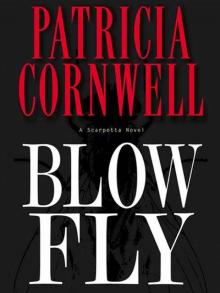 Blow Fly
Blow Fly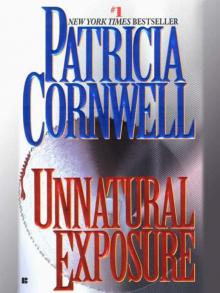 Unnatural Exposure
Unnatural Exposure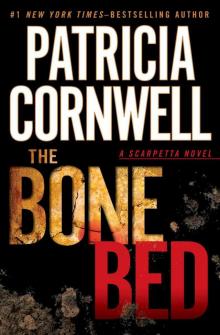 The Bone Bed
The Bone Bed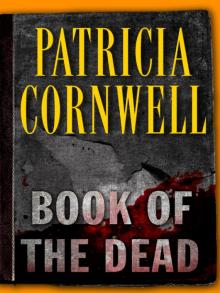 Book of the Dead
Book of the Dead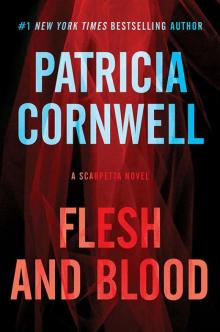 Flesh and Blood: A Scarpetta Novel (Scarpetta Novels Book 22)
Flesh and Blood: A Scarpetta Novel (Scarpetta Novels Book 22)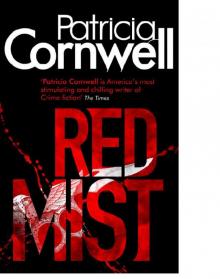 Red Mist
Red Mist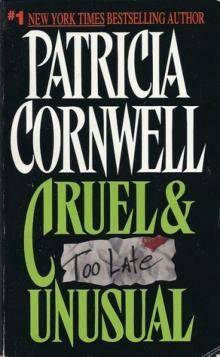 Cruel & Unusual
Cruel & Unusual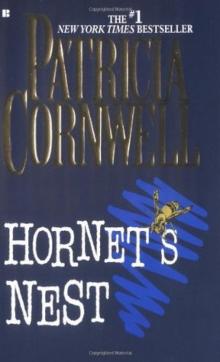 Hornet's Nest
Hornet's Nest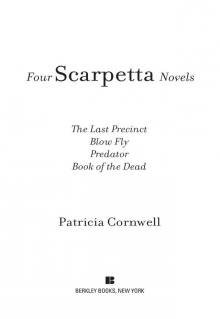 Four Scarpetta Novels
Four Scarpetta Novels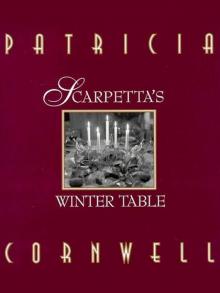 Scarpetta's Winter Table
Scarpetta's Winter Table Isle of Dogs
Isle of Dogs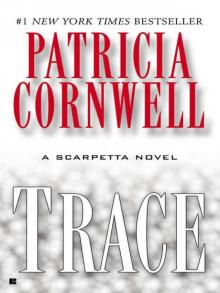 Trace
Trace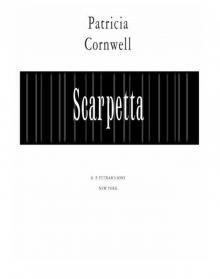 Postmortem
Postmortem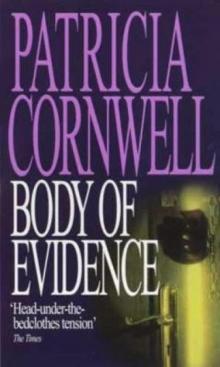 Body of Evidence ks-2
Body of Evidence ks-2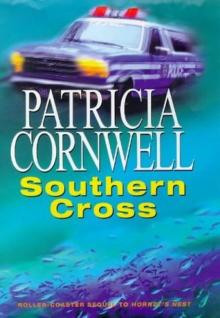 Southern Cross
Southern Cross All That Remains
All That Remains Point of Origin
Point of Origin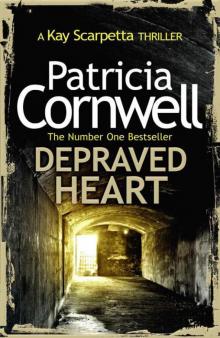 Depraved Heart
Depraved Heart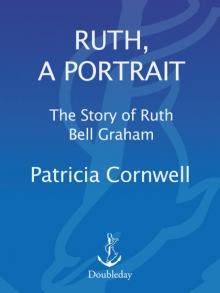 Ruth, a Portrait: The Story of Ruth Bell Graham
Ruth, a Portrait: The Story of Ruth Bell Graham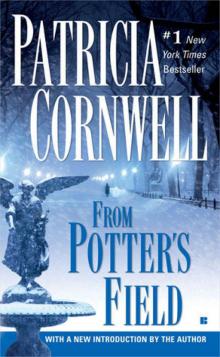 From Potter's Field
From Potter's Field Flesh and Blood
Flesh and Blood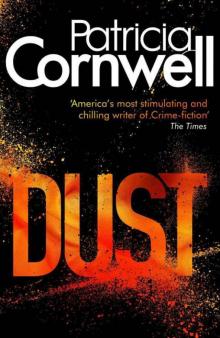 Dust
Dust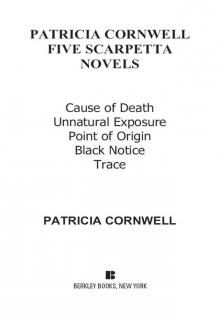 The Body Farm
The Body Farm Port Mortuary
Port Mortuary Quantum
Quantum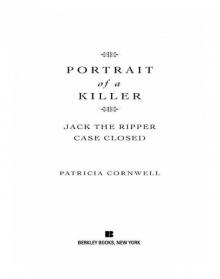 Portrait of a Killer: Jack the Ripper - Case Closed
Portrait of a Killer: Jack the Ripper - Case Closed Spin (Captain Chase)
Spin (Captain Chase)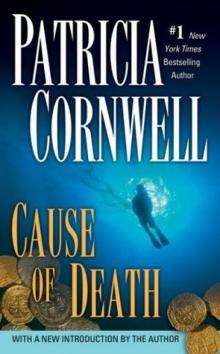 Cause of Death
Cause of Death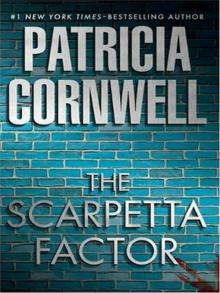 The Scarpetta Factor
The Scarpetta Factor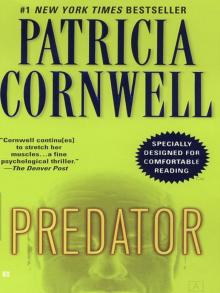 Predator
Predator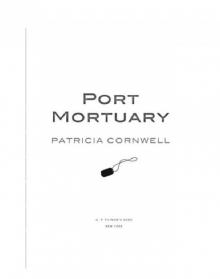 Scarpetta 18 - Port Mortuary
Scarpetta 18 - Port Mortuary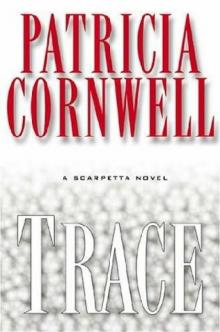 Trace ks-13
Trace ks-13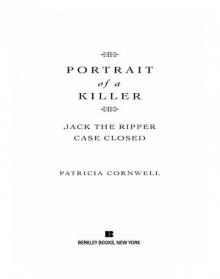 Portrait of a Killer
Portrait of a Killer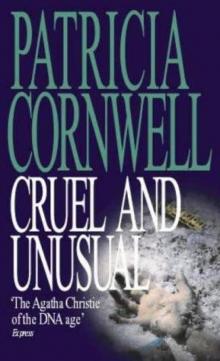 Cruel and Unusual ks-4
Cruel and Unusual ks-4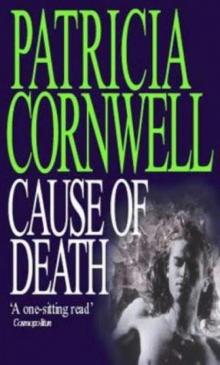 Cause Of Death ks-7
Cause Of Death ks-7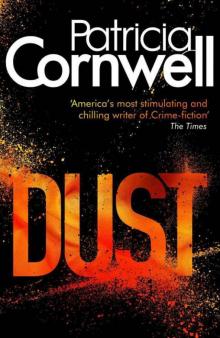 Dust ks-21
Dust ks-21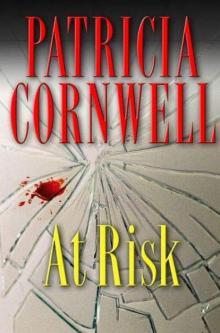 At Risk wg-1
At Risk wg-1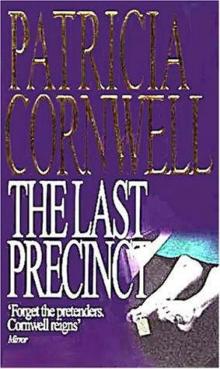 The Last Precinct ks-11
The Last Precinct ks-11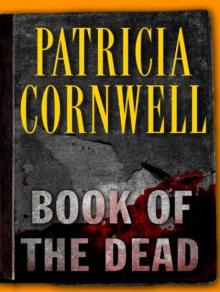 Book of the Dead ks-15
Book of the Dead ks-15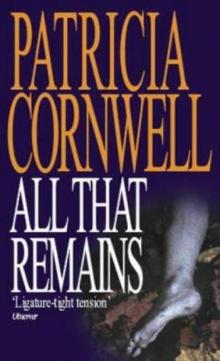 All That Remains ks-3
All That Remains ks-3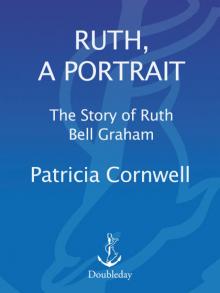 Ruth, a Portrait
Ruth, a Portrait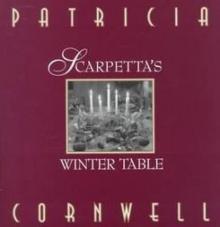 Scarpetta's Winter Table (kay scarpetta)
Scarpetta's Winter Table (kay scarpetta)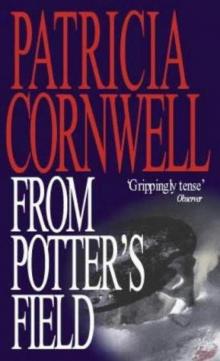 From Potter's Field ks-6
From Potter's Field ks-6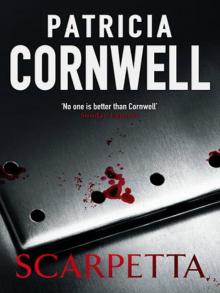 Scarpetta
Scarpetta Isle of Dogs jhabavw-3
Isle of Dogs jhabavw-3 Hornet's Nest jhabavw-1
Hornet's Nest jhabavw-1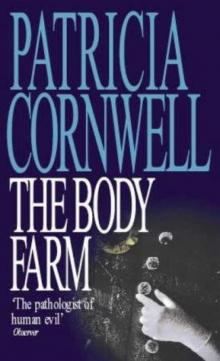 The Body Farm ks-5
The Body Farm ks-5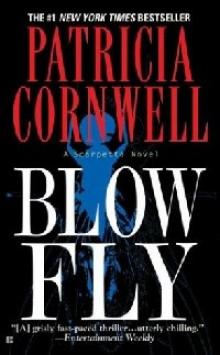 Blow Fly ks-12
Blow Fly ks-12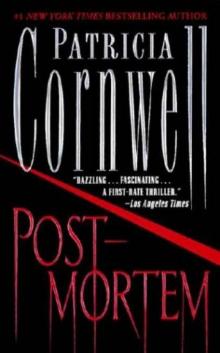 Post Mortem
Post Mortem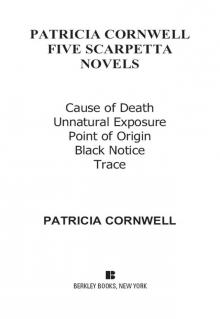 Five Scarpetta Novels
Five Scarpetta Novels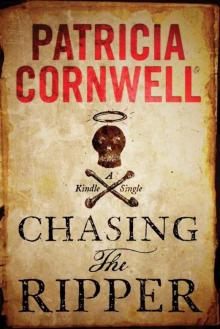 Chasing the Ripper (Kindle Single)
Chasing the Ripper (Kindle Single)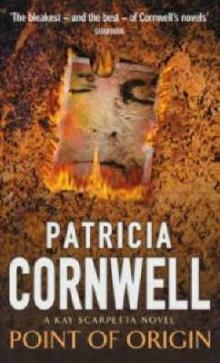 Point of Origin ks-9
Point of Origin ks-9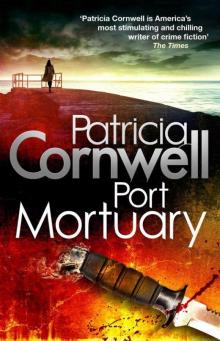 Port Mortuary (2010)
Port Mortuary (2010)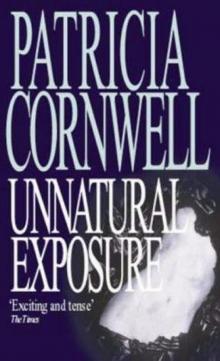 Unnatural Exposure ks-8
Unnatural Exposure ks-8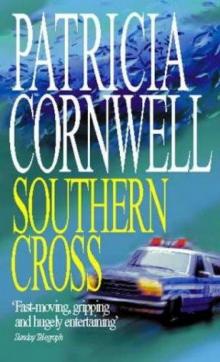 Southern Cross uhabavw-2
Southern Cross uhabavw-2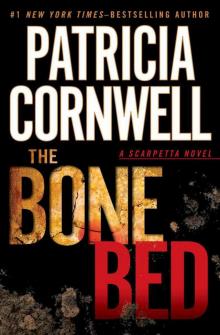 The Bone Bed ks-20
The Bone Bed ks-20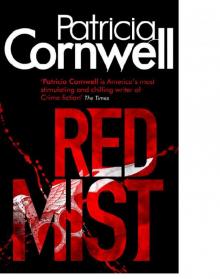 Red Mist ks-19
Red Mist ks-19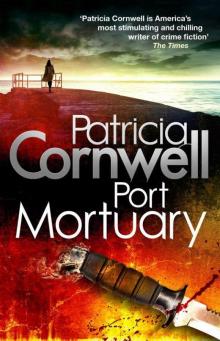 Port Mortuary (2010) ks-18
Port Mortuary (2010) ks-18 Predator ks-14
Predator ks-14